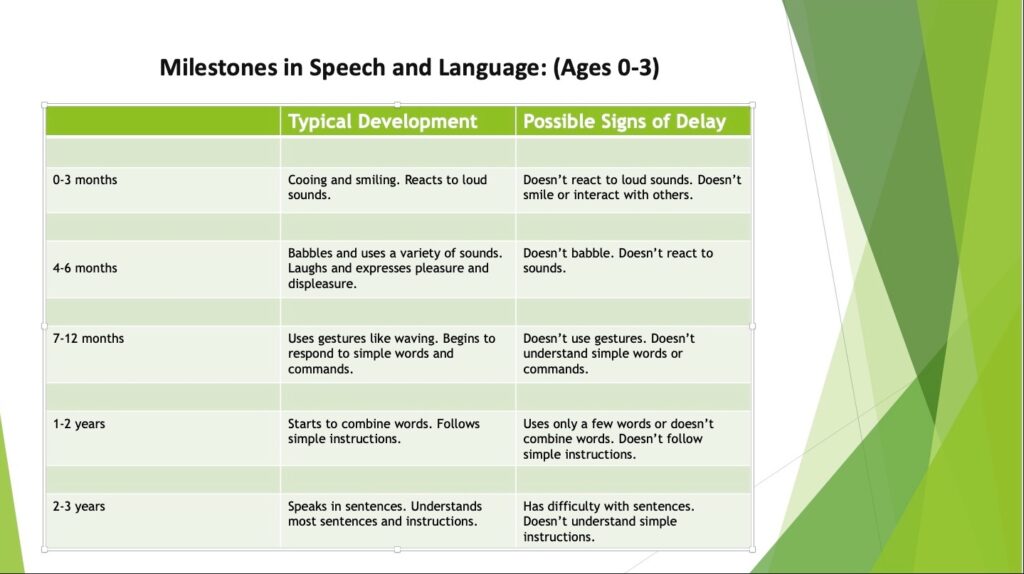
Early Intervention Speech Therapy: Why It Matters for Toddlers
Speech therapy for toddlers can make a life-changing difference. If your child isn’t talking yet or struggles to communicate, you’re not alone. Many parents feel unsure of when to seek help—but the earlier, the better. In this guide, we’ll explain the signs of delay, how early speech therapy works, and why starting early gives your child the best chance to thrive.
According to the American Speech-Language-Hearing Association, early speech and language support helps toddlers build the foundational skills needed for communication, learning, and social interaction.

What Is Early Intervention?
Early intervention refers to therapeutic services and support provided to children from birth to age 3 who show delays in communication, motor skills, cognitive development, or social-emotional growth. In the area of speech therapy, it helps toddlers learn to express themselves, understand others, and develop the foundations
Signs Your Toddler May Need Speech Therapy
As a parent or caregiver, you know your child best. If you notice your toddler isn’t hitting expected milestones, don’t wait—early help makes a big difference. Here are some signs that speech and language therapy may be helpful:
- No babbling or cooing by 12 months
- No pointing, waving, or other gestures by 12–15 months
- Fewer than 10 words by 18 months
- Not combining two words (e.g., “more juice”) by 24 months
- Difficulty following simple instructions by 2 years
- Speech is mostly unclear to strangers by age 3
You can explore more milestones in our Child Development Milestones Ages 0–5 guide.
Benefits of Early Speech Therapy
When children receive speech therapy early, they are more likely to overcome communication challenges before they affect school, relationships, or confidence. Here’s how early intervention helps:
- 1. Improved Communication
- Children learn to express their needs, wants, and ideas clearly, leading to better behavior and reduced frustration.
- 2. Academic Readiness
- Speech and language skills are the building blocks of reading, writing, and classroom learning. Early therapy prepares kids for success.
- 3. Higher Confidence
- Children who can communicate well tend to participate more, socialize easier, and feel more secure in themselves.
- 4. Prevents Future Delays
- Getting help early can reduce the risk of long-term issues, including emotional or social difficulties linked to delayed communication.
What’s Included in Toddler Speech Therapy
Speech therapy is tailored to each child. Common components include:
Speech Therapy Sessions
Your child works one-on-one with a speech-language pathologist (SLP) who targets their specific needs—whether that’s articulation, language comprehension, or social communication.
Parent Involvement
SLPs coach parents to become communication partners. You’ll learn how to model language, create routines that spark speech, and support your child’s growth at home.
Collaborative Care
If your child has additional needs, your SLP may work alongside occupational therapists, physical therapists, or other early childhood professionals. This team approach ensures whole-child support.
Interactive Language Activities
We offer fun tools to support language development:
- First Word Detectives : Help your child learn new words by turning exploration into a game.
- Word Matching Game Reinforce vocabulary with colorful, engaging images and sounds.
These activities make learning fun and boost results!
Question: When should I start speech therapy for my child?
Answer: If you’re concerned about your toddler’s speech or language development, don’t wait. A certified speech-language pathologist (SLP) can evaluate your child as early as 12 months. Starting early can make a big difference.
Question: Will my child outgrow a speech delay?
Answer: Some children do outgrow mild delays, but many benefit from early speech therapy. Getting help early can shorten the delay and reduce the risk of future challenges with learning and social interaction.
Question: How do I get started with speech therapy?
Answer: Begin by talking to your pediatrician about your concerns. You can also contact your local early intervention program or a licensed speech-language pathologist for an evaluation and next steps.
Question: What are early signs of a speech delay in toddlers?
Answer: Signs include no babbling by 12 months, fewer than 10 words by 18 months, no two-word phrases by 24 months, difficulty following simple instructions, or speech that is unclear to others by age 3.
Question: How does speech therapy help toddlers?
Answer: Speech therapy teaches toddlers to express their needs, understand others, and build the foundation for school and social success. Early support can prevent long-term difficulties.
In Summary
Early intervention speech therapy offers children the chance to build strong communication skills from the very beginning. With prompt evaluation, consistent support, and guidance for families, toddlers with delays can make incredible progress.
By taking action early, you’re not only helping your child speak—you’re giving them the tools to connect, learn, and shine.
